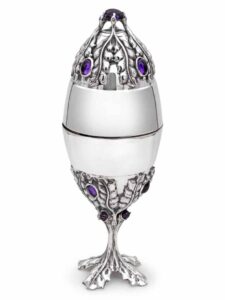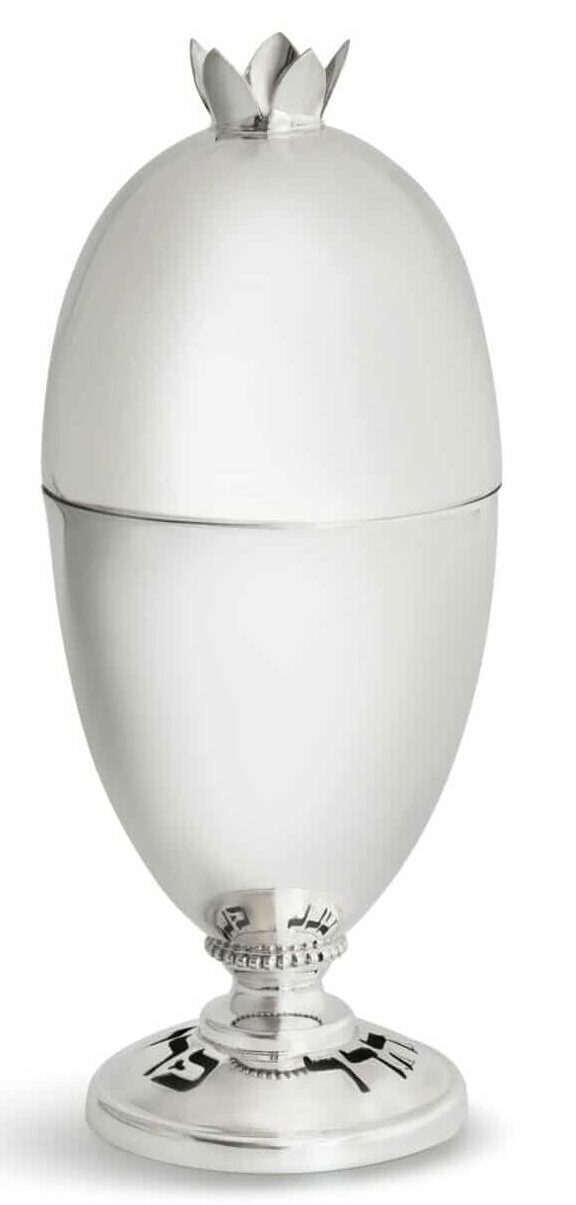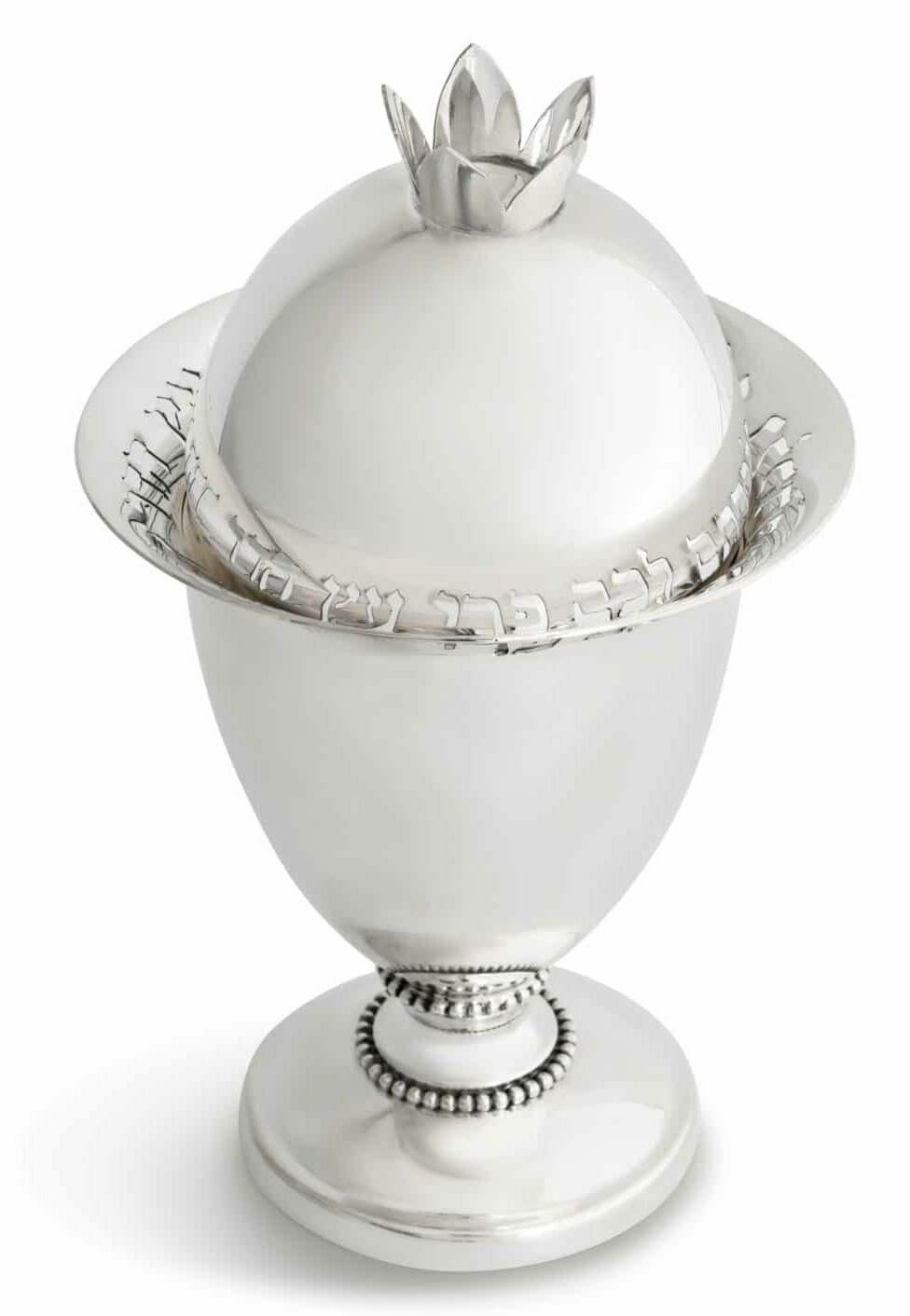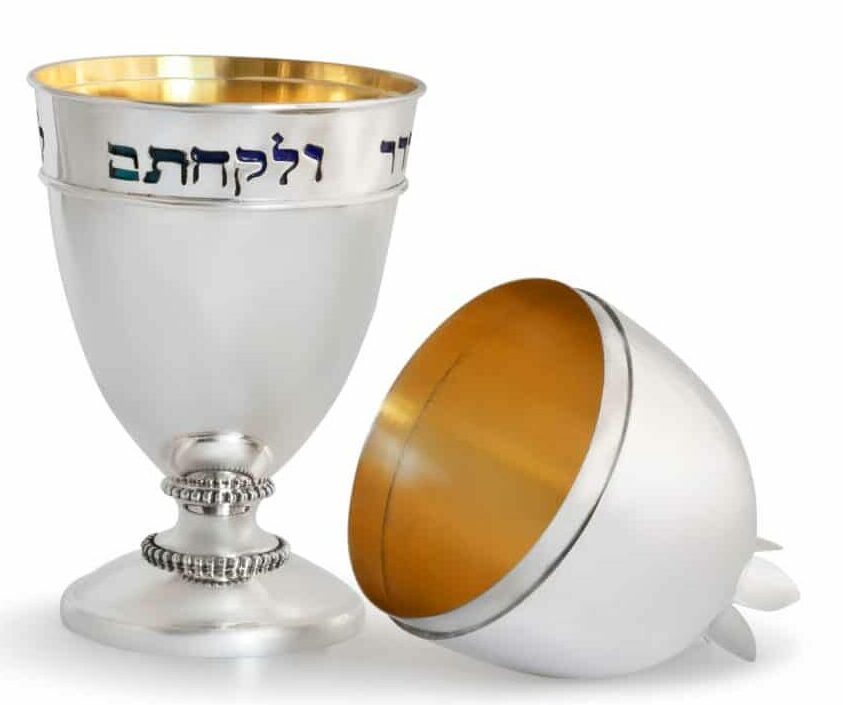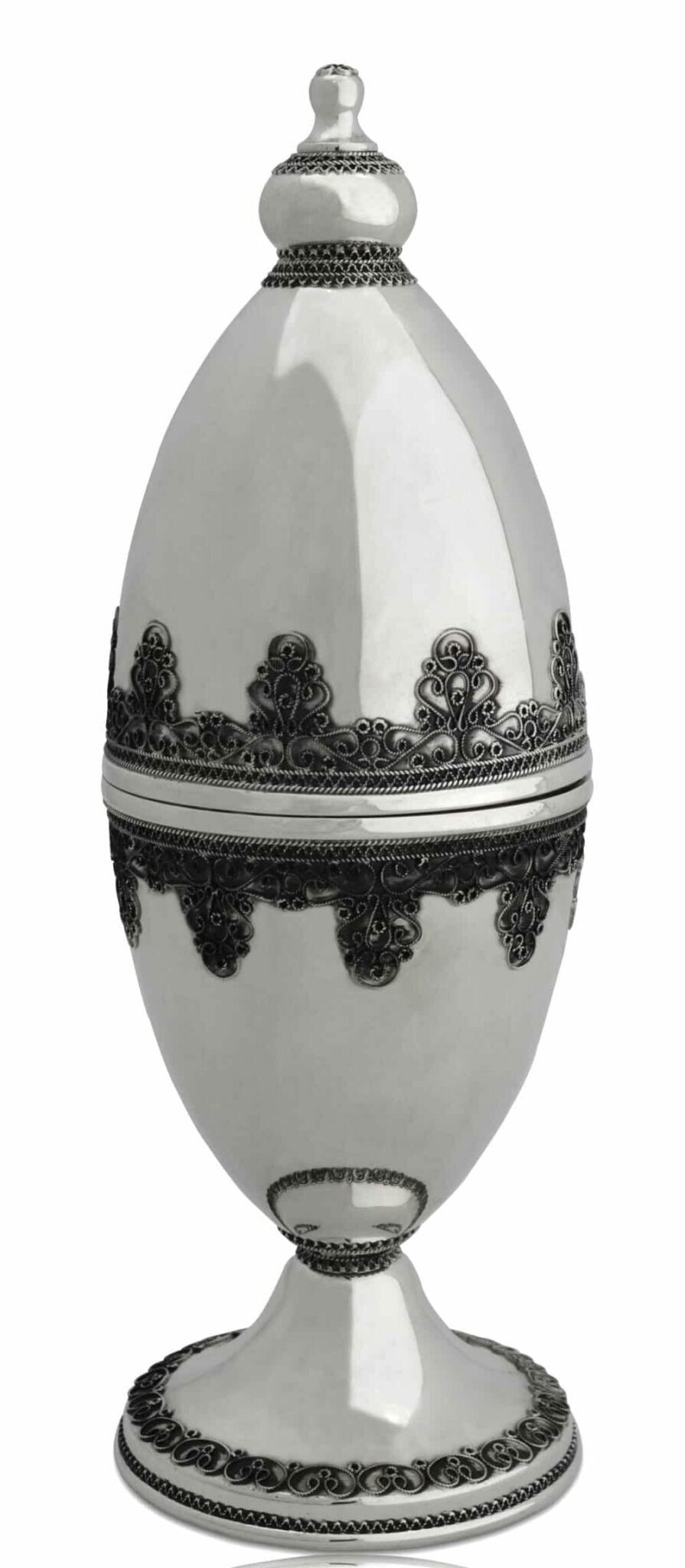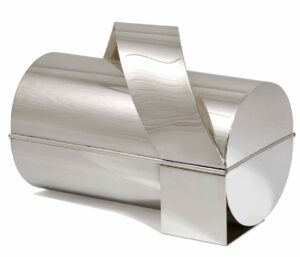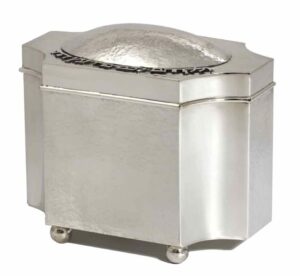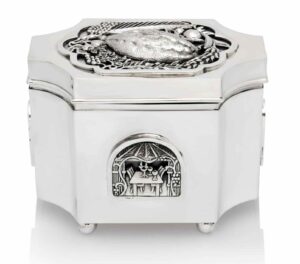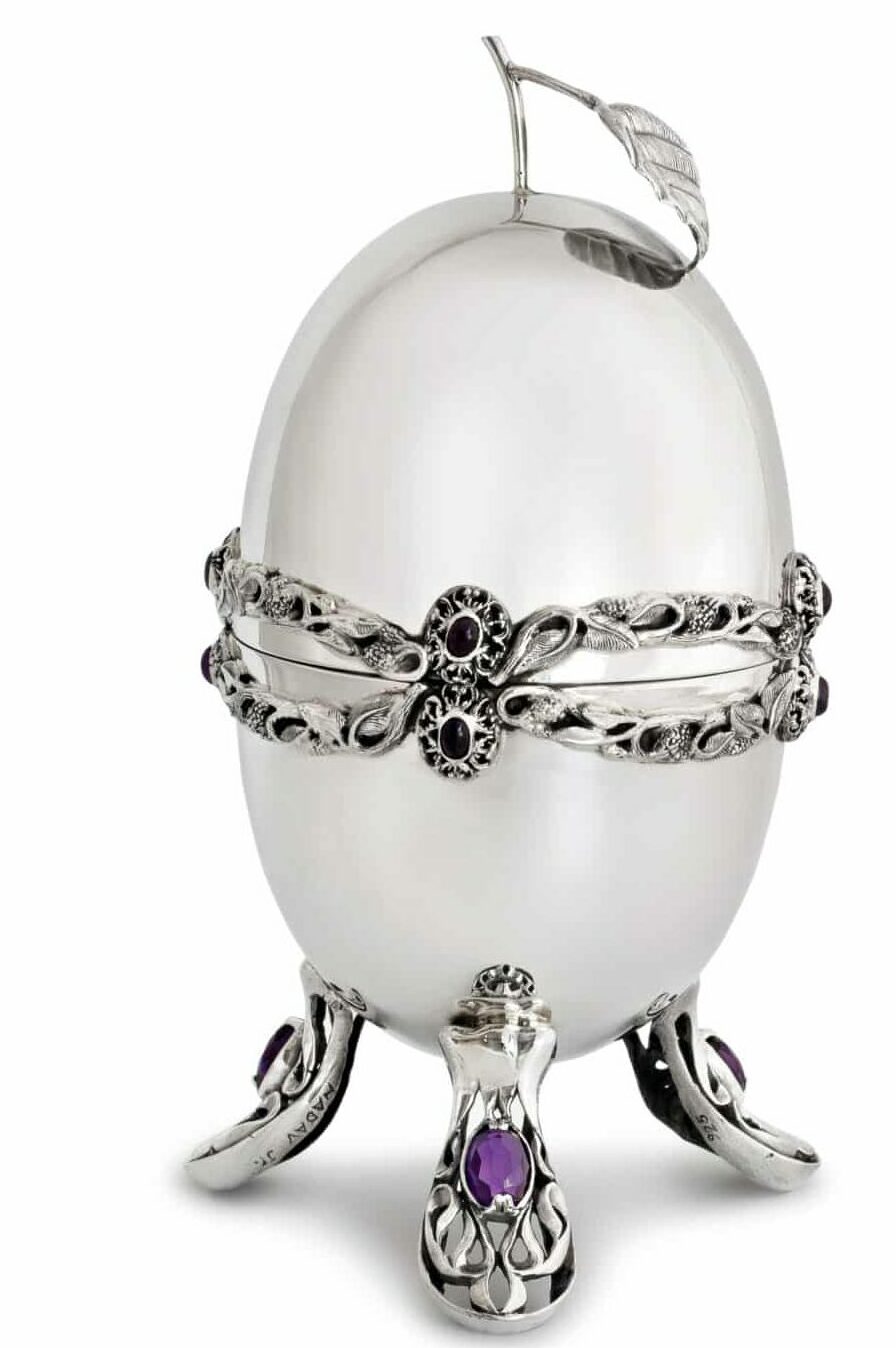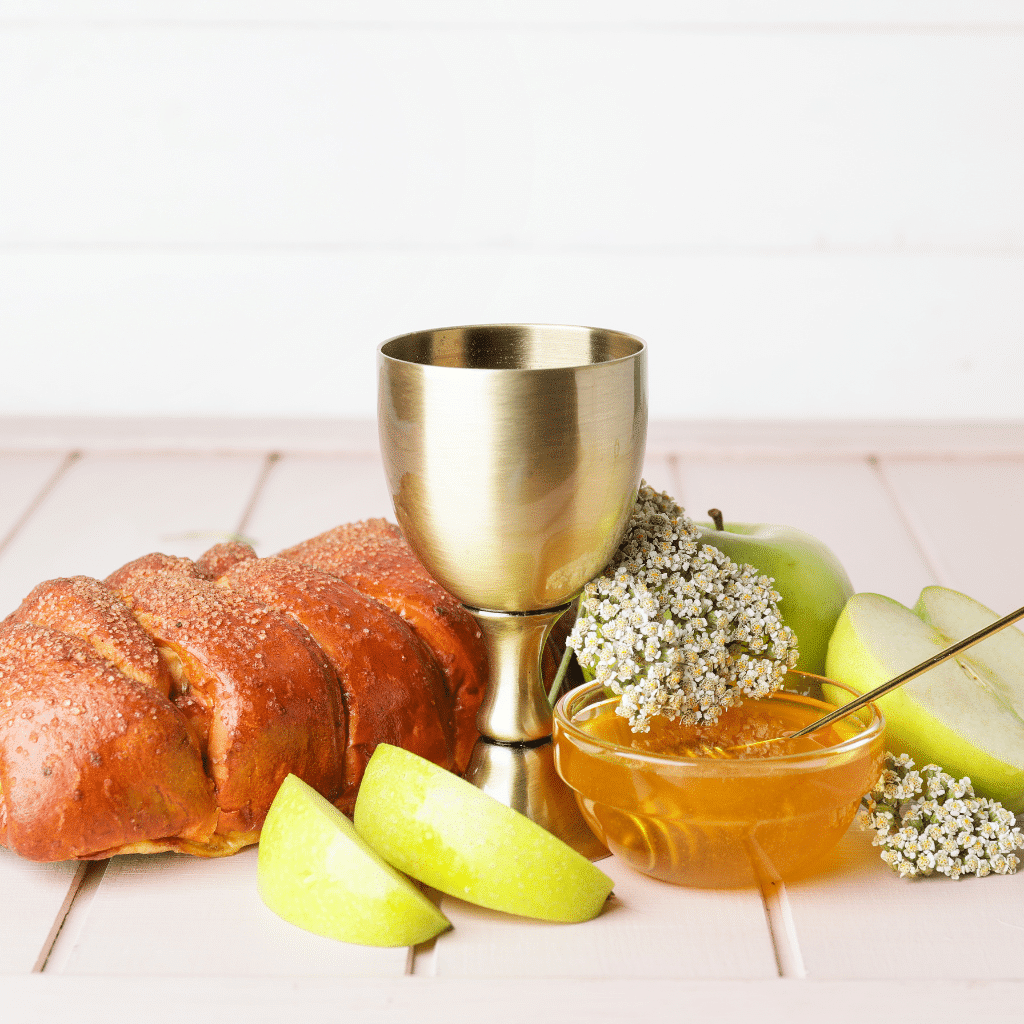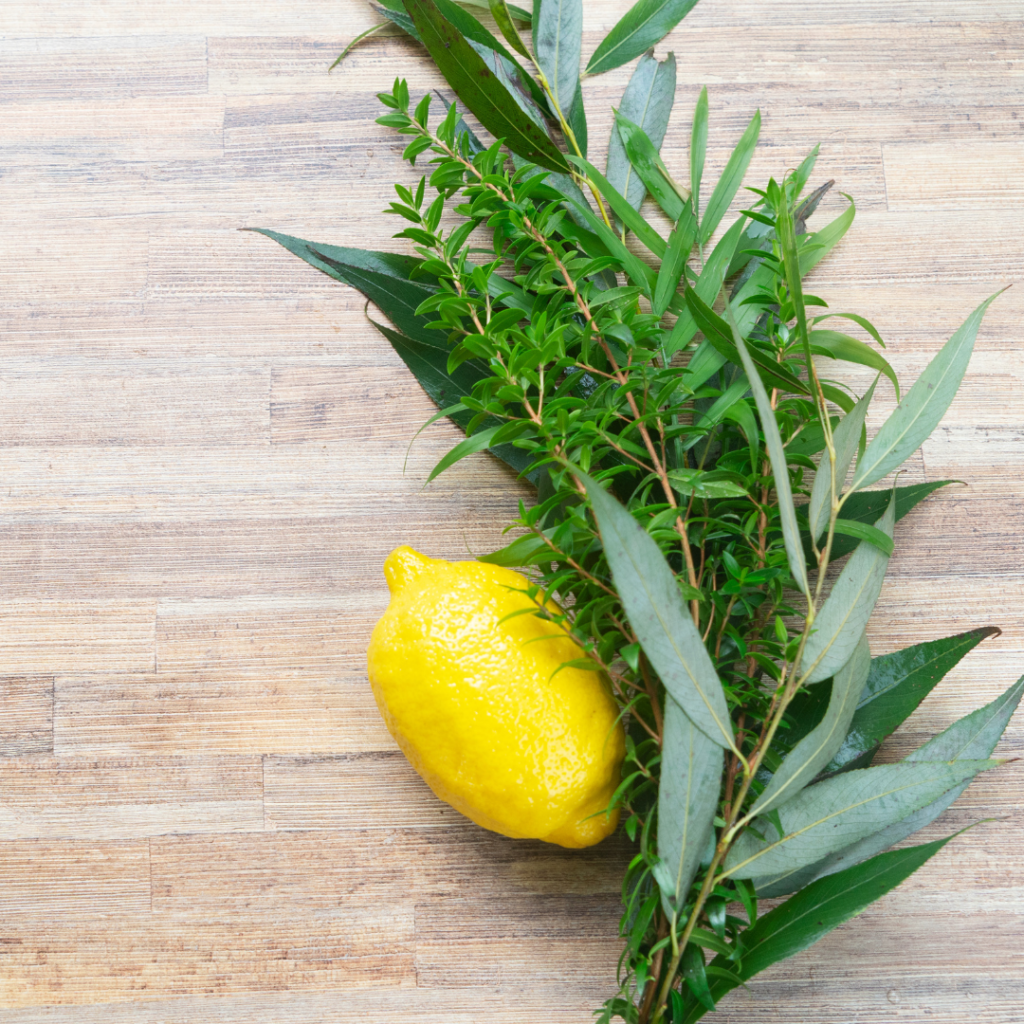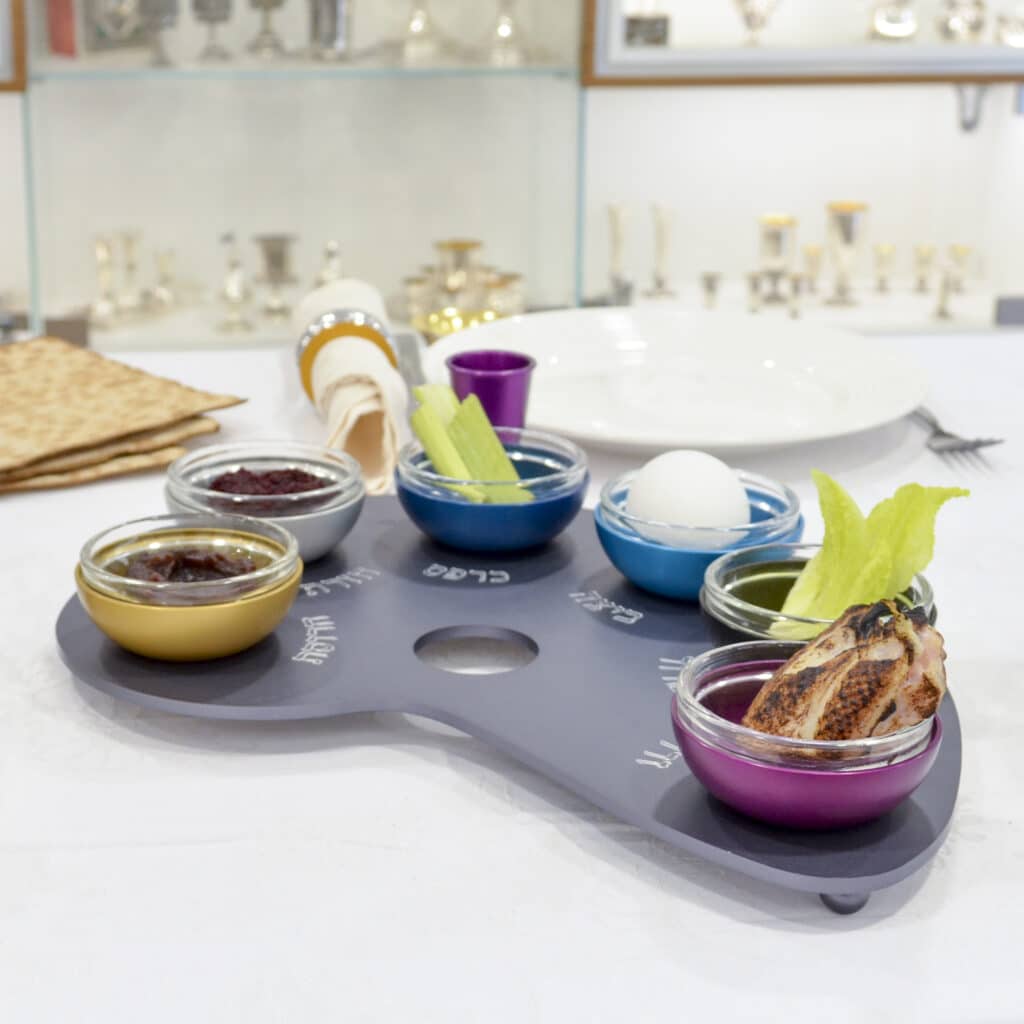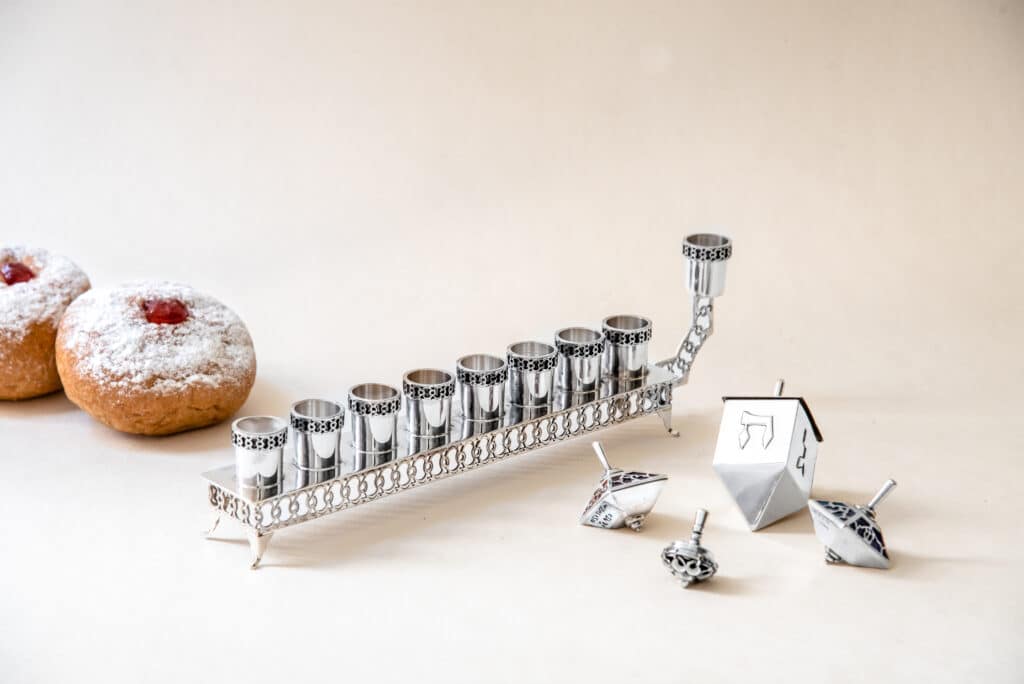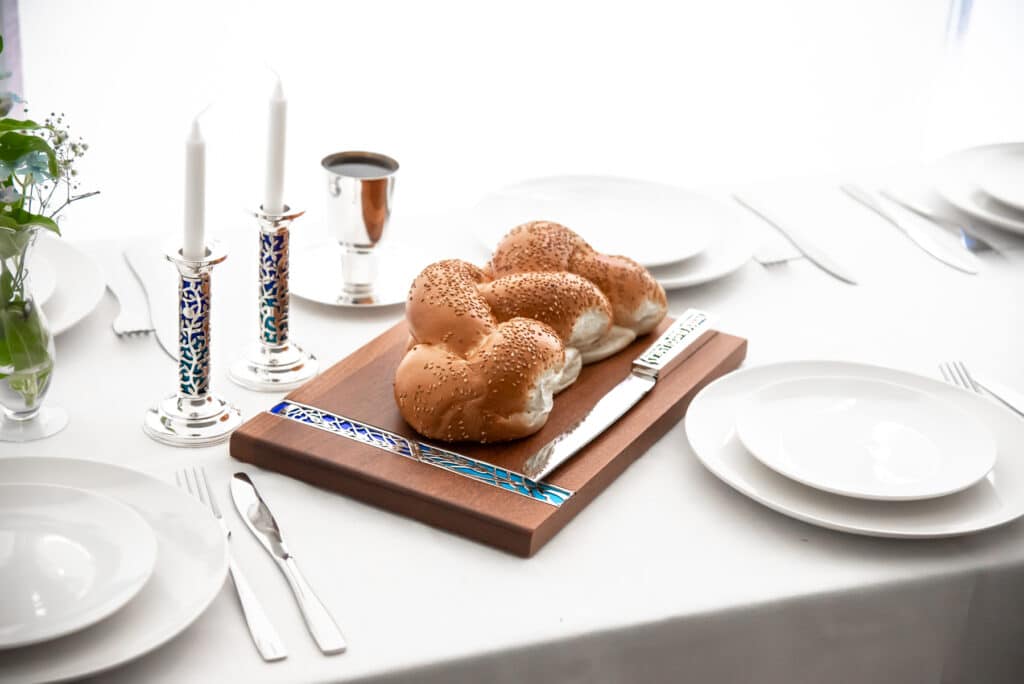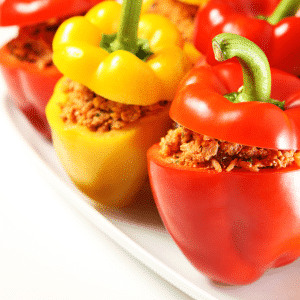
In addition to being delicious, these special dishes are steeped in cultural and religious symbolism.
From sweet pastries to savory soups, here’s a look at some of the most popular Sukkot food traditions.
So whether you’re preparing for your own feast or simply interested in learning more about Jewish cuisine during Sukkot, keep reading to satisfy both your curiosity and taste buds!
To hear the entire article for your convenience, click the play button.
Sukkot
Before we get to the food, let’s take a minute to learn about the holiday. Sukkot is one of the Jewish holidays celebrated each year in the fall. It’s a time of thanksgiving and joy, observed by building a sukkah (booth) and gathering with family to enjoy meals.
Sukkot is also known as “the season of our rejoicing” due to its cheerful atmosphere and communal spirit. During Sukkot, it’s customary to invite guests, both friends, and strangers, to share meals and enjoy fellowship in the Sukkah.
What Food is Traditional for Sukkot?
Stuffed Cabbage
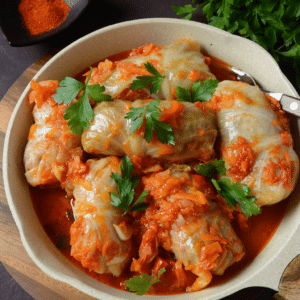
Stuffed Peppers
Similar to stuffed cabbage, peppers are filled with a hearty mixture, often consisting of rice, ground meat, and various spices. These stuffed peppers are baked until soft, serving as a nutritious and satisfying dish.
Stuffed Grape Leaves (Dolma)
These bite-sized treats are made from grape leaves wrapped around a rice filling, often mixed with herbs, spices, and sometimes ground meat or vegetables. They’re usually served cold, making them a refreshing addition to the Sukkot feast.
Kreplach
Kreplach is small dumplings filled with ground meat, mashed potatoes, or another filling. They’re often served in soup, providing a warm and comforting element to the meal.
Kugel
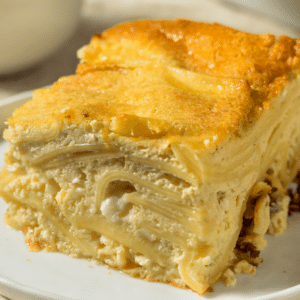
Challah
Challah is a rich, slightly sweet, braided bread that’s a staple of many Jewish celebrations, including Sukkot. It’s often round during Sukkot, symbolizing the cycle of life.
Make sure to check our Challah Boards & Knives collection.
Apple and Honey Cake
This cake, sweetened with apples and honey, is a classic dessert during Sukkot. The apples and honey symbolize the hope for a sweet new year.
Tzimmes
Tzimmes is a sweet stew made from dried fruits and carrots or raisins, often combined with other root vegetables or even meat. The sweetness of the dish adds to the overall joyous mood of the Sukkot feast.
Gefilte Fish
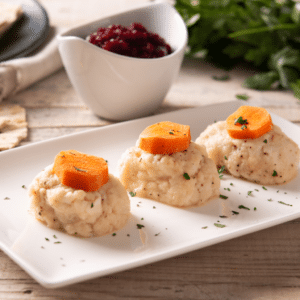
Borscht
Borscht is a sour soup commonly made from beetroot, which gives it a distinctive red color. Depending on the version, borscht might contain meat or vegetables and is often served with a dollop of sour cream.
Sweet Potato Kugel
Sweet Potato Kugel is a Sukkot variation on the classic Kugel. It’s made from grated sweet potatoes, eggs, and matzo meal and often includes raisins for a hint of sweetness. This dish is usually served as part of the main course or as a side dish.
These dishes represent a blend of many cultural traditions and regional influences within the Jewish community, and each contributes to the abundant and festive Sukkot table.
Sukkot Desserts
Honey Cake
Honey cake is a sweet, moist dessert often enjoyed during Sukkot. This cake is made with honey, giving it a rich flavor. The use of honey also symbolizes hope for a sweet and prosperous new year.
Rugelach
Rugelach are small pastries that are typically filled with ingredients like chocolate, nuts, cinnamon, or fruit preserves. These bite-sized treats are easy to enjoy while sitting in the Sukkah and are a delicious end to any Sukkot feast.
Tzimmes Cake
The Tzimmes cake is a unique dessert inspired by the traditional Tzimmes dish. It incorporates sweet elements like carrots and dried fruits, making it a flavorful and fitting dessert for a holiday.
Kugel
While Kugel is often served as a savory dish, sweet versions made with noodles, cream cheese, and sweet spices like cinnamon are also popular. Some versions also include fruit, making it a sweet, comforting end to the meal.
Apple Strudel
Apple strudel is a type of layered pastry with a filling of tart apples, often sweetened with sugar and spices like cinnamon and nutmeg. The apple strudel is a nod to the fall harvest season and is a deliciously sweet end to a Sukkot meal.
Each of these desserts adds a touch of sweetness to the Sukkot meal, bringing joy and satisfaction to the celebration.
Discover our exclusive Sukkot Gifts collection.
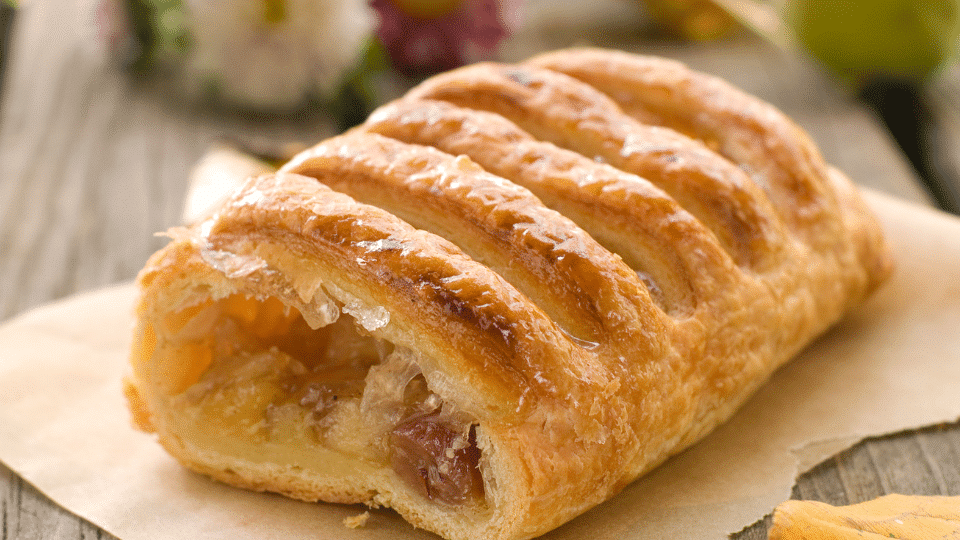
Sukkot Drinks
During Sukkot, a variety of beverages can be consumed, ranging from traditional Jewish drinks to common beverages enjoyed worldwide.
Wine

To add to this tradition’s aesthetic and spiritual depth, the wine is typically served in a Kiddush cup. As the wine is poured into the Kiddush cup and the blessing is recited, it’s as if time pauses, allowing us to appreciate the sanctity of the moment.
Grape Juice
For those who prefer a non-alcoholic option, grape juice can be used as a substitute for wine during the Kiddush blessing. Like wine, it should be kosher.
Arak
A traditional Middle Eastern spirit often consumed in Israel, Arak is sometimes enjoyed during Sukkot. This anise-flavored liquor is usually mixed with water and served with ice.
Water
As with any meal, water is often served to stay hydrated, which is especially important if Sukkot is celebrated in a warm climate.
Tea and Coffee
These common beverages can be served during Sukkot meals or enjoyed in the Sukkah in the cooler evening hours.
Fruit Juices and Soft Drinks
These are often available, especially for children or for those who prefer non-alcoholic beverages.
While what you drink on Sukkot can vary, the key is to ensure that all beverages comply with kosher dietary laws if you or your hosts observe these. Above all, the holiday is a time of celebration and community, so it’s often about sharing and enjoying food and drink in the company of loved ones.

Why do we Eat Stuffed Foods on Sukkot?
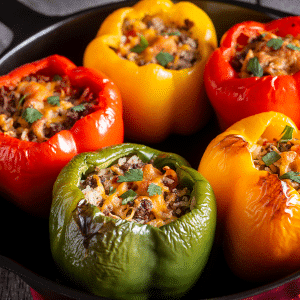
Eating stuffed foods on Sukkot is a long-standing tradition with deep cultural and symbolic significance. This practice is rooted in the symbolism of Sukkot as a harvest festival and is reflective of the agricultural heritage of the holiday.
One reason for eating stuffed foods on Sukkot is to celebrate the abundance of the harvest season. By stuffing foods such as vegetables, dough, or meat with various fillings, we are symbolically filling them up with blessings and gratitude for the bountiful crops that have been harvested.
In addition to representing abundance, stuffed foods also serve as a reminder of our reliance on nature’s resources. The act of stuffing food items symbolizes filling up and making use of all available resources to their fullest potential.
Furthermore, there are traditional dishes specifically associated with Sukkot that involve stuffing. For example, one popular dish is called “kreplach,” which consists of dumplings filled with meat or cheese. These dishes have their roots in Jewish culinary traditions and have been passed down through generations as part of Sukkot celebrations.
Overall, eating stuffed foods during Sukkot is a way to connect to our agricultural roots, express gratitude for the harvest, and reinforce themes of abundance and resourcefulness during this joyous holiday.
The custom of consuming stuffed foods during Sukkot carries deep symbolic meaning. This practice represents the divine protection and providence that the Jews received during their arduous journey in the desert following their liberation from bondage in Egypt.
Much like the filled interiors of these foods, God’s protective presence enveloped and sustained the Jews, offering them spiritual and physical “shelter” amidst their trials. So, when we savor these stuffed dishes, we’re not just enjoying a delightful culinary tradition but also commemorating our ancestors’ enduring faith and resilience.
What Can I Bring to Sukkot Dinner?
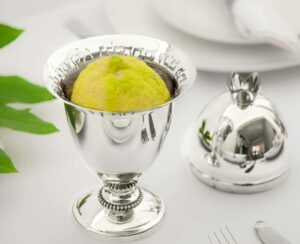
If you’re wondering what to bring to a Sukkot dinner, here’s a handy list to guide you:
Sukkot Gifts: A thoughtful Sukkot gift is always appreciated. Consider items such as a beautiful Sukkah decoration, a Jewish cookbook, or even a set of Etrog and Lulav if your hosts don’t have them yet.
Challah Covers: Challah covers are used to cover the Challah bread before the meal begins, honoring the commandment to keep the bread hidden until the blessing is said. A beautiful Challah cover could make a special and practical gift for your hosts.
Wine or Grape Juice: A bottle of kosher wine or grape juice is always a safe bet for a Sukkot dinner. They can be used for the Kiddush blessing or simply enjoyed with the meal.
Dessert: Bringing a homemade or store-bought dessert can be a delightful treat. Traditional options like honey cake or strudel would fit right in with the Sukkot feast.
Fresh Fruit: In line with the harvest theme of Sukkot, a basket of fresh, seasonal fruits makes for a thoughtful and healthy gift.
Napkin Holders: Practical yet stylish, napkin holders make for a great addition to the Sukkot table. Opt for designs with a festive or Judaic theme to suit the occasion.
Remember, the key to a great Sukkot gift is thoughtfulness. Consider your hosts’ preferences and needs, and choose something that they’ll truly appreciate.
Elevate your Sukkot celebration with our authentic Etrog Boxes
What are the 7 Fruits of Sukkot?
The seven fruits of Sukkot are known as the “Shiv’at HaMinim” in Hebrew and refer to the seven species of fruits and grains that are native to the land of Israel.
– Wheat
– Barley
– Grapes (often consumed in the form of wine)
– Figs
– Pomegranates
– Olives (or olive oil)
– Dates (or honey made from dates)
These seven species hold great significance in the Jewish tradition and are often included in meals during Sukkot and other Jewish festivals.
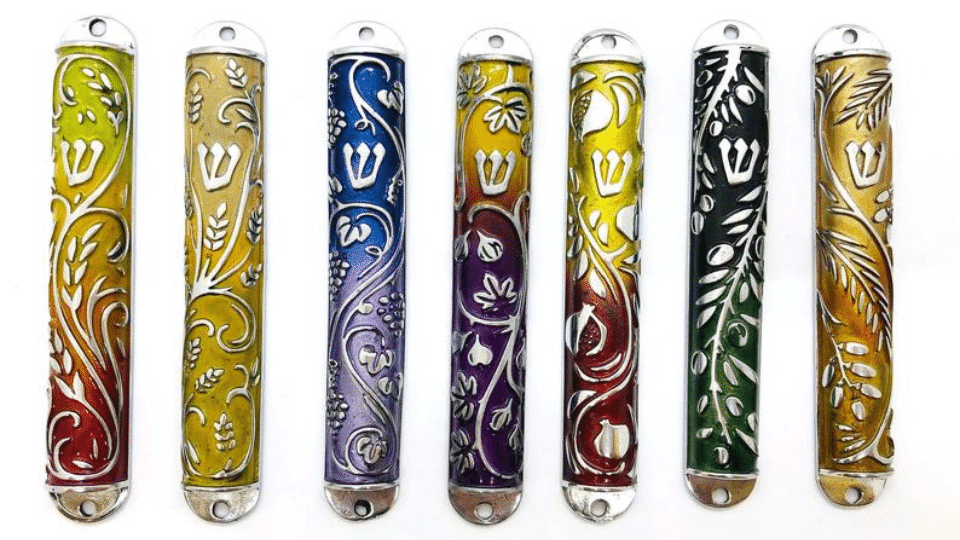
What are the Traditions of Sukkot?
Building the Sukkah
During Sukkot, it’s customary to build a temporary hut or booth known as a sukkah. This structure, often decorated with fruits, vegetables, and other elements of the fall harvest, serves as a reminder of the temporary dwellings the Jews used during their 40 years of wandering in the desert.
Dwelling in the Sukkah
Families eat meals, entertain guests, and even sleep in the Sukkah during the seven days of Sukkot. This tradition is a way of remembering and appreciating God’s protection to the Jews in their journey through the desert.
The Four Species
Another important Sukkot ritual involves the “Four Species” or “Arba Minim.” These are the etrog (a citrus fruit), Lulav (palm branch), Hadas (myrtle branches), and Arava (willow branches).
These are waved in all directions during the holiday to acknowledge God’s presence everywhere.
Ushpizin
Ushpizin is the tradition of inviting guests to join in the Sukkot meals, particularly those less fortunate. This tradition emphasizes the themes of hospitality, charity, and community that are central to Sukkot.
Hoshana Rabbah
On the seventh day of Sukkot, known as Hoshana Rabbah, it is customary to make seven circuits around the synagogue with the Lulav and etrog while reciting special prayers for salvation.
Simchat Torah
Sukkot ends with the joyous holiday of Simchat Torah, celebrating the completion and immediate recommencement of the annual Torah reading cycle. This is a festive occasion marked by singing, dancing, and processions with Torah scrolls.
Summary
Sukkot food is rich with tradition, symbolism, and, of course, incredible flavor. Whether you’re enjoying classic stuffed foods or trying out a modern fusion dish, the most important thing is to celebrate the spirit of abundance, gratitude, and community that Sukkot embodies.
As you honor these traditions, why not bring an extra touch of Israeli craftsmanship to your celebration? At the Israeli Center Of Judaica, we offer a myriad of exquisite Sukkot Gifts and Etrog Boxes, all handmade with care and precision in the heart of Jerusalem. Our collections can bring the warmth, culture, and heritage of Israel straight into your Sukkot celebrations.
Explore our collections at The Israeli Center Of Judaica today and find that special piece that speaks to you, enhancing your holiday experience and creating lasting memories.
Remember, it’s not just about the food. It’s about the entire ambiance, the atmosphere, and the deep connection to our roots that make Sukkot truly special.


